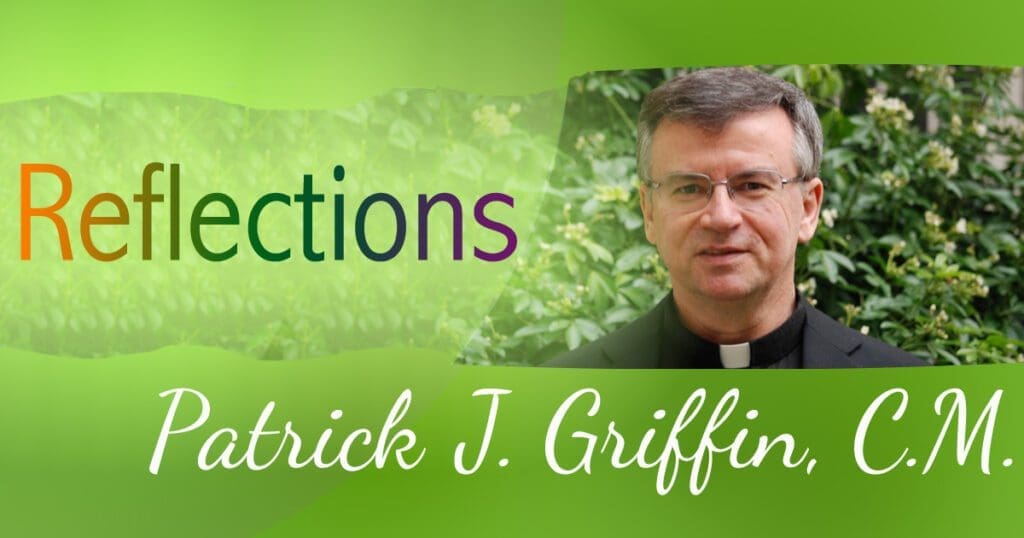Each year I select a theme that gives direction to one/some of the programs that I organize at St. John’s University. A number of possibilities came to mind for 2023. Synodality continues as an important focus for Pope Francis in this year. The United States Conference of Catholic Bishops (USCCB) promotes a National Eucharistic Revival. And, as Pope Francis anticipates the anniversary of the Second Vatican Council, he has encouraged study and reflection on the four Constitutions written by the Council. Truly, an abundance of riches.

For one of my programs, I have decided to join two of the possible themes—that of the Eucharist and the Constitutions of Vatican II. Joining both of these elements in our Catholic life offers an opportunity to allow each to be understood more fully and collaboratively. I consider three elements that rest at the heart of our sacramental celebration: the liturgy of the word, the liturgy of the altar, and the gathered community of faith. All of these can be examined from the insights of the Vatican II documents. I offer one brief example for each.
The importance of the Liturgy of the Word receives powerful affirmation in the “Dogmatic Constitution on Divine Revelation” (Dei verbum). Herein, many important points emerge with regard to the potency of the divine message. The nourishment of the Christian community flows from the word of God proclaimed from our Scriptures and from the sacrament of the altar. Both are taken in and digested by an observant Christian people.
The Church has always venerated the divine Scriptures just as she venerates the body of the Lord, since, especially in the sacred liturgy, she unceasingly receives and offers to the faithful the bread of life from the table both of God’s word and of Christ’s body. (Dei Verbum, 21).
The reception of the Word of the Lord and the Body of Christ are joined in one Eucharistic whole.
The sacrament of the altar receives special emphasis in the “Constitution on the Sacred Liturgy” (Sacrosanctum concilium):
At the Last Supper, on the night when He was betrayed, our Saviour instituted the eucharistic sacrifice of His Body and Blood. He did this in order to perpetuate the sacrifice of the Cross throughout the centuries until He should come again, and so to entrust to His beloved spouse, the Church, a memorial of His death and resurrection: a sacrament of love, a sign of unity, a bond of charity, a paschal banquet in which Christ is eaten, the mind is filled with grace, and a pledge of future glory is given to us. (Sacrosanctum Concilium, 47)
The Catechism of the Catholic Church, in line with the Vatican II document, famously refers to the Eucharist as the “source and summit” of the Christian life (1324). In this sacrament of the altar, Christ himself becomes present among us once again.
The centrality of the Christian community at the Eucharist, can be seen reflected in both the “Pastoral Constitution on the Church in the Modern World” (Gaudium et spes) and the “Dogmatic Constitution on the Church” (Lumen gentium). As a people with common concerns and values, we gather as a community at the table of the Lord and then go forth to change our world. One of the notable lines of the Council, and one that speaks to our Vincentian hearts, introduces Gaudium et spes.
The joys and hopes, the grief and anguish of the people of our time, especially of those who are poor or afflicted, are the joys and hopes, the grief and anguish of the followers of Christ as well. (Gaudium et spes, 1)
Lumen gentium emphasizes the community formed at the table of the Lord:
In the sacrament of the eucharistic bread, the unity of all believers who form one body in Christ is both expressed and brought about. All men are called to this union with Christ, who is the light of the world, from whom we go forth, through whom we live, and toward whom our whole life strains. (Lumen gentium, 3)
As we enter into a Eucharistic Revival, as we reflect on the Documents of Vatican II, the mutual connections and confessions can deepen our love for the teachings of our Church and its central sacrament.







0 Comments